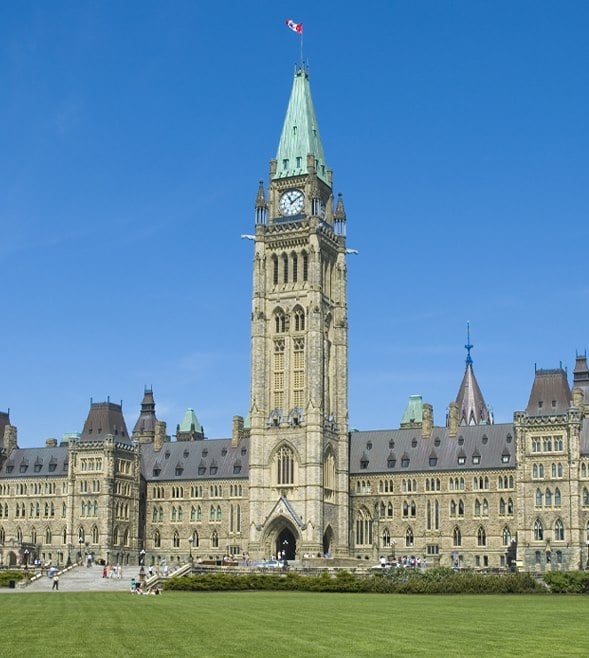-
Financial reporting and accounting advisory services
You trust your external auditor to deliver not only a high-quality, independent audit of your financial statements but to provide a range of support, including assessing material risks, evaluating internal controls and raising awareness around new and amended accounting standards.
-
Accounting Standards for Private Enterprises
Get the clear financial picture you need with the accounting standards team at Doane Grant Thornton LLP. Our experts have extensive experience with private enterprises of all sizes in all industries, an in-depth knowledge of today’s accounting standards, and are directly involved in the standard-setting process.
-
International Financial Reporting Standards
Whether you are already using IFRS or considering a transition to this global framework, Doane Grant Thornton LLP’s accounting standards team is here to help.
-
Accounting Standards for Not-for-Profit Organizations
From small, community organizations to large, national charities, you can count on Doane Grant Thornton LLP’s accounting standards team for in-depth knowledge and trusted advice.
-
Public Sector Accounting Standards
Working for a public-sector organization comes with a unique set of requirements for accounting and financial reporting. Doane Grant Thornton LLP’s accounting standards team has the practical, public-sector experience and in-depth knowledge you need.
-
Tax planning and compliance
Whether you are a private or public organization, your goal is to manage the critical aspects of tax compliance, and achieve the most effective results. At Doane Grant Thornton, we focus on delivering relevant advice, and providing an integrated planning approach to help you fulfill compliance obligations.
-
Research and development and government incentives
Are you developing innovative processes or products, undertaking experimentation or solving technological problems? If so, you may qualify to claim SR&ED tax credits. This Canadian federal government initiative is designed to encourage and support innovation in Canada. Our R&D professionals are a highly-trained, diverse team of practitioners that are engineers, scientists and specialized accountants.
-
Indirect tax
Keeping track of changes and developments in GST/HST, Quebec sales tax and other provincial sales taxes across Canada, can be a full-time job. The consequences for failing to adequately manage your organization’s sales tax obligations can be significant - from assessments, to forgone recoveries and cash flow implications, to customer or reputational risk.
-
US corporate tax
The United States has a very complex and regulated tax environment, that may undergo significant changes. Cross-border tax issues could become even more challenging for Canadian businesses looking for growth and prosperity in the biggest economy in the world.
-
Cross-border personal tax
In an increasingly flexible world, moving across the border may be more viable for Canadians and Americans; however, relocating may also have complex tax implications.
-
International tax
While there is great opportunity for businesses looking to expand globally, organizations are under increasing tax scrutiny. Regardless of your company’s size and level of international involvement—whether you’re working abroad, investing, buying and selling, borrowing or manufacturing—doing business beyond Canada’s borders comes with its fair share of tax risks.
-
Transfer pricing
Transfer pricing is a complex area of corporate taxation that is concerned with the intra-group pricing of goods, services, intangibles, and financial instruments. Transfer pricing has become a critical governance issue for companies, tax authorities and policy makers, and represents a principal risk area for multinationals.
-
Succession & estate planning
Like many private business owners today, you’ve spent your career building and running your business successfully. Now you’re faced with deciding on a successor—a successor who may or may not want your direct involvement and share your vision.
-
Tax Reporting & Advisory
The financial and tax reporting obligations of public markets and global tax authorities take significant resources and investment to manage. This requires calculating global tax provision estimates under US GAAP, IFRS, and other frameworks, and reconciling this reporting with tax compliance obligations.

-
Transactions
Our transactions group takes a client-centric, integrated approach, focused on helping you make and implement the best financial strategies. We offer meaningful, actionable and holistic advice to allow you to create value, manage risks and seize opportunities. It’s what we do best: help great organizations like yours grow and thrive.
-
Restructuring
We bring a wide range of services to both individuals and businesses – including shareholders, executives, directors, lenders, creditors and other advisors who are dealing with a corporation experiencing financial challenges.
-
Forensics
Market-driven expertise in investigation, dispute resolution and digital forensics
-
Cybersecurity
Viruses. Phishing. Malware infections. Malpractice by employees. Espionage. Data ransom and theft. Fraud. Cybercrime is now a leading risk to all businesses.
-
Consulting
Running a business is challenging and you need advice you can rely on at anytime you need it. Our team dives deep into your issues, looking holistically at your organization to understand your people, processes, and systems needs at the root of your pain points. The intersection of these three things is critical to develop the solutions you need today.
-
Creditor updates
Updates for creditors, limited partners, investors and shareholders.

-
Governance, risk and compliance
Effective, risk management—including governance and regulatory compliance—can lead to tangible, long-term business improvements. And be a source of significant competitive advantage.
-
Internal audit
Organizations thrive when they are constantly innovating, improving or creating new services and products and envisioning new markets and growth opportunities.
-
Certification – SOX
The corporate governance landscape is challenging at the best of times for public companies and their subsidiaries in Canada, the United States and around the world.
-
Third party assurance
Naturally, clients and stakeholders want reassurance that there are appropriate controls and safeguards over the data and processes being used to service their business. It’s critical.
-
 Assurance Important changes coming to AgriInvest in 2025AgriInvest is a business risk management program that helps agricultural producers manage small income declines and improve market income.
Assurance Important changes coming to AgriInvest in 2025AgriInvest is a business risk management program that helps agricultural producers manage small income declines and improve market income. -
 ASPE Sec. 3041 Agriculture Understanding and applying the new ASPE Section 3041 AgricultureThe Canadian Accounting Standards Board (AcSB) has released new guidance on recognizing, measuring and disclosing biological assets and the harvested products of bio assets.
ASPE Sec. 3041 Agriculture Understanding and applying the new ASPE Section 3041 AgricultureThe Canadian Accounting Standards Board (AcSB) has released new guidance on recognizing, measuring and disclosing biological assets and the harvested products of bio assets. -
 Tax alert Agricultural Clean Technology ProgramThe Agricultural Clean Technology Program will provide financial assistance to farmers and agri-businesses to help them reduce greenhouse gas (GHG) emissions.
Tax alert Agricultural Clean Technology ProgramThe Agricultural Clean Technology Program will provide financial assistance to farmers and agri-businesses to help them reduce greenhouse gas (GHG) emissions. -
 Tax alert ACT Program – Research and Innovation Stream explainedThe ACT Research and Innovation Stream provides financial support to organizations engaged in pre-market innovation.
Tax alert ACT Program – Research and Innovation Stream explainedThe ACT Research and Innovation Stream provides financial support to organizations engaged in pre-market innovation.
-
Builders And Developers
Every real estate project starts with a vision. We help builders and developers solidify that vision, transform it into reality, and create value.
-
Rental Property Owners And Occupiers
In today’s economic climate, it’s more important than ever to have a strong advisory partner on your side.
-
Real Estate Service Providers
Your company plays a key role in the success of landlords, investors and owners, but who is doing the same for you?

-
Mining
There’s no business quite like mining. It’s volatile, risky and complex – but the potential pay-off is huge. You’re not afraid of a challenge: the key is finding the right balance between risk and reward. Whether you’re a junior prospector, a senior producer, or somewhere in between, we’ll work with you to explore, discover and extract value at every stage of the mining process.
-
Oil & gas
The oil and gas industry is facing many complex challenges, beyond the price of oil. These include environmental issues, access to markets, growing competition from alternative energy sources and international markets, and a rapidly changing regulatory landscape, to name but a few.

Liberals re-elected to Parliament amid prolonged economic disruption
Held against the backdrop of a variant-fueled fourth wave of COVID-19, an affordable housing crisis, growing climate concerns and continued economic uncertainty, Canadians went to the polls and re-elected a Liberal minority federal government on September 20 after a snap election.
Under its renewed mandate, there are lingering questions about how much the Liberal government will be able to accomplish while in power for another term; and what measures they’ll enact to put Canada on the road to economic recovery. While a minority government was the most likely outcome, it’s now up to the Liberal party to maintain the country’s confidence.
Here is a summary of the results and what it could mean for business owners:
The following summary is up-to-date as of 12:00 p.m. EST on September 21; it’s subject to change as mail-in ballots are counted
- Liberals: projected to win 158 seats
- Conservatives: projected to win the popular vote, as well as 119 seats
- Bloc Quebecois: projected to win 34 seats
- NDP: projected to win 25 seats
- Green Party: projected to win two seats
- People’s Party of Canada: failed to win a seat, but saw an increase in the popular vote
All the federal party leaders were elected or re-elected in their ridings, except for Green Party leader Annamie Paul.
[Source: theglobeandmail.com]
After a 36-day campaign, it’s evident that little has changed in voters’ preferences. Each of the political parties focused their platforms on pandemic response and competing visions for economic recovery. They had different ideas for how much should be spent, where it should be spent and the duration of spending.
Prior to the election, Grant Thornton released a summary of the major party platforms [ 24227 kb ] with a focus on tax and business-related factors. With the results now in, we’ve conducted a deeper analysis of how the proposed tax measures may impact Canadians—and the country’s road to economic recovery.
COVID-19 response
Canada’s recovery from COVID-19 remains precarious and the fourth wave could see a renewed need for economic support programs for businesses and individuals
The Liberals have already spent billions of dollars on pandemic aid in the form of relief benefits and wage subsidies and have announced further plans to extend the Canada Emergency Wage Subsidy (CEWS) to October. Additionally, they’ve proposed an extension of the Canada Recovery Hiring Program (CRHP) until March to help small employers make new hires. The CHRP would pay 50% of the wages of new employees until October, with the rate decreasing to 20% from November to March 2022. These programs could give small business owners more time to recover and rehire in the next year.
The party has also pledged to boost the Canada Small Business Financing Program (CSBFP) to increase the maximum loan amount to $500K from $350K. Further, the Liberals intend to help the hard-hit tourism industry with temporary wage and rent support for up to 75% of expenses, as well as introduce the Arts and Culture Recovery Program which will match ticket sales to compensate for reduced capacity in event venues.
The increase to the CSBFP could provide significant capital for expansion for small businesses who qualify (e.g. those with annual gross revenue under $10 million and that meet other qualifying criteria). Access to capital through the CSBFP, as well as the continued availability of the CRHP, could also provide small businesses with a significant opportunity to expand operations as they continue their recovery from the economic downturn caused by the pandemic.
Corporate tax measures
Targeting Bay Street as a source of new revenue
The Liberals have proposed an increase to the federal general corporate income tax rate for financial institutions earning more than $1 billion annually, with a rise from 15% to 18%. Still focusing on financial institutions, the Liberals also plan to introduce the Canada Recovery Dividend—a temporary tax payable by banks and insurance companies with earnings over $1 billion over the next four years. Little more is currently known about this proposed measure, including what rate would apply and on what earnings it would apply to. Nevertheless, given banks’ significant jump in earnings in their most recent fiscal quarter, year-over-year, as well as the government’s significant spending over the last 18 months, it’s likely that these measures would stick.
To address potential sophisticated tax planning or profit-shifting by large banks and insurance companies, the Liberals also intend to develop targeted anti-avoidance rules. Though it’s unclear what such measures would look like, these measures are expected to take effect in 2022-23.
In addition, the Liberals intend to implement a global minimum tax requiring a parent company to pay a “top-up” if income made further down the ownership chain has been taxed below the global minimum rate, which is currently set at 15%.
Addressing growing concerns over climate change
With climate top of mind for many Canadians this election, the Liberals plan to introduce corporate tax measures that are tied to environmental concerns. One of the proposed measures is a new investment tax credit of up to 30% on “clean technologies”. They also stated they would double the Mineral Exploration Tax Credit on minerals that are essential for the manufacturing of clean technologies, such as batteries. Finally, with an eye on consumers, the Liberals have stated they will extend the rebate for zero-emission vehicles (iZEV rebate worth up to $5K) to a wider range of vehicle types, including used vehicles.
For small-to-medium enterprises (SMEs) that are considering expansion and are planning to make capital purchases in the near future, it’s possible that the “clean technology ITC” could prove beneficial. Although few details are currently available, SMEs with intentions of making what might be considered “clean technology” capital purchases should keep a close eye on what expenditures might qualify for this ITC, once more details on this measure are released.
Personal tax
Taxation on high-income earners and addressing the affordable housing crisis
The Liberals plan to impose a 15% minimum tax rule for top bracket taxpayers, limiting their ability to reduce their tax liability with “excessive deductions and credits”. The highest income tax bracket for federal taxes is currently set on income over $216,511. It should be noted that a minimum tax rule, known as the Alternative Minimum Tax, already exists with the same aim as the one noted here so we’ll need to wait to see how this new 15% minimum tax rule will be implemented.
In what appears to be an effort to go after wealthier individuals, the party intends to introduce a luxury tax on new cars and private aircrafts worth more than $100K. This measure was already in the works at the time the election was called, with an intended application date of January 1, 2022. The inclusion in the party platform simply confirms the Liberal party’s intention of proceeding with this tax.
With affordable housing being a major driver for this election, the Liberals have proposed a new tax-free First Home Savings Account to help younger Canadians afford a down payment faster. Additionally, the party has promised to double the first-time Home Buyers’ Credit and offer a new multi-generational home renovation tax credit to help families add a secondary unit to their home for immediate or extended family members. They have also promised new tax credits to cover home appliance repairs (up to $500) and double the Home Accessibility Tax Credit (to $20K on renovation expenses).
To tackle foreign investment and flipping in the housing sector, the Liberals plan to expand the upcoming 1% tax on foreign-owned vacant housing to include foreign-owner vacant land within large urban areas and impose an anti-flipping tax, requiring residential properties to be held for at least 12 months, with exemptions for major life events.
New tax credits proposed to stimulate Canada’s workforce
The Liberals have proposed targeted new credits for certain workers, such as a new Labour Mobility Tax Credit of up to $600/year for workers in the building and construction trades for travel and temporary relocation expenses; they have also proposed a one-time tax deduction for health care professionals of up to $15K over their first three years of practice; and, they plan to offer a Career Extension Tax Credit of up to $1,650 for seniors continuing to work past 65 and who earn a minimum of $5K.
Although these measures are targeted towards individuals, there are potential implications for employers. The Labour Mobility Tax Credit may make this type of work more attractive to workers as they’ll be able to experience tax savings. New health care professionals who experience savings from a $15K deduction could potentially use those savings to reinvest in their practice through expansion and new hiring. Although the tax credit for seniors may not be significant, it may be enough motivation to encourage seniors who are not quite sure about retirement to remain in the workforce, thus providing employers with a larger overall pool of workers to hire from.
Are we on the road to economic recovery?
Canada’s tax system is a major policy lever for rebuilding the Canadian economy. While the Liberals have proposed measures to continue to support individuals and businesses through the COVID-19 pandemic, we would like to get more clarity around spending measures and how they’re being balanced with tax revenue collection in order to ensure that there is a plan in place to pay down the deficits that were created during the pandemic. We’d also like some assurance that our economic recovery isn’t derailed by significant government deficits and no plan to pay back over a realistic time frame.
Have questions? Let us help.
The newly proposed tax measures could offer opportunities for taxpayers—as well as risks for businesses, individuals and consumers.
At Grant Thornton, our deep technical expertise and broad perspective on complex tax matters help us to understand your challenges and identify opportunities—especially in these extraordinary times. Contact us today to learn how these changes may affect you.
Get the latest insights in your inbox.
Subscribe to receive relevant and timely insights and event invitations.



